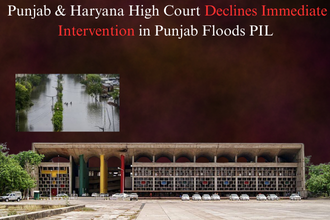In a landmark ruling, the Supreme Court of India has upheld the rights of genuine cultivators under the Kerala Private Forests (Vesting and Assignment) Act, 1971. In the case of M. Jameela v. State of Kerala and others (2025 LiveLaw SC 1023), the Court declared that 37.5 acres of land in South Wayanad, cultivated with coffee and cardamom, is private plantation land and not a vested forest under the Kerala State Act.
Case Background
The dispute arose over whether the land in question constituted a private forest vested with the State of Kerala. The appellant, M. Jameela, claimed ownership and possession of the land, asserting that it had been developed as coffee and cardamom plantations well before 1971. The Forest Department, however, contended that the land had vested with the State as a forest under the Kerala Private Forests (Vesting and Assignment) Act, 1971.
Supreme Court’s Findings
The Supreme Court examined historical records, statutory registrations, expert testimony, and government documentation to arrive at its decision. Key findings include:
- Historical Cultivation: The Court noted that the land had been cleared and converted into coffee and cardamom plantations as early as 1957 by the original owner, Parappu Mappilakath Imbichi Ahmed, with permission from the District Collector under the Madras Preservation of Private Forests Act, 1949.
- Registration with Statutory Boards: The plantations were duly registered with the Coffee Board and the Cardamom Board prior to the appointed day (May 10, 1971), with registration certificates issued on June 30, 1971.
- Expert Evidence: The Court relied on findings of the Advocate Commissioner and a Coffee Board expert, who estimated the age of several coffee plants at 40–42 years as of 2007, indicating mid-1960s plantation.
- Tax and Revenue Records: The land had consistently been treated as a plantation by government authorities.
- Forest Department Actions: Initially, the Forest Department had excluded the land from vested forest demarcation. However, decades later, the State attempted to claim about 8.25 acres as Government land without convincing justification.
Court’s Observations
The Supreme Court observed that “genuine cultivators should not be made to fight a prolonged battle to vindicate rights that are apparent from the public records.” It criticized the Forest Tribunal and the Kerala High Court for adopting a “technical and overly skeptical” approach, calling their findings “manifestly unsustainable.”
The Court emphasized that the presence of young plants in a plantation in 2007 did not imply the area was barren in 1971, noting that plantations are dynamic with older plants replaced by new ones.
Judgment Outcome
The Supreme Court allowed the appeals, declaring M. Jameela as the lawful owner in possession of the property. The Court directed the State of Kerala and the Custodian of Vested Forests to correct boundary records within six weeks.
The Court concluded that the entire 37.5 acres of land falls under the exemption provisions of Sections 3(2) and 3(3) of the Kerala Private Forests (Vesting and Assignment) Act, 1971, as lands under bona fide coffee and cardamom plantations existing prior to the appointed day.
Significance of the Judgment
This judgment reaffirms the legal protections for genuine cultivators and clarifies the scope of the Kerala Private Forests (Vesting and Assignment) Act. By highlighting that bona fide cultivation prior to the appointed day exempts land from vesting with the State, the Supreme Court has provided a crucial precedent for similar cases across Kerala and other states with vested forest legislations.
The ruling serves as a reminder that landowners and cultivators maintaining plantations in good faith cannot be unduly deprived of their rights, and public records must be given due weight in determining ownership.
Also Read
Bombay High Court Appoints High Powered Committee to Protect Sanjay Gandhi National Park
Delhi High Court Restrains Use of ‘WOW BURGER’, Upholds WOW Momo’s Trademark Rights


